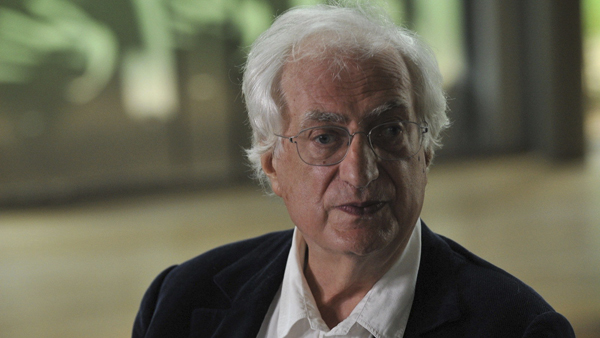This congenial tour of French film history arrives at an opportune time as more classic movies have become available on streaming services such as FilmStruck. Personally curated by director Bertrand Tavernier, this is an ideal introduction to French cinema from the 1930s to the ’70s, as well as a go-to resource for DVD collectors. (In fact, several of the films noted here by Jean Renoir and Julien Duvivier were streaming on FilmStruck when it arrived last year.)
Tavernier, the filmmaker who directed jazz saxophonist Dexter Gordon to an Oscar-nominated turn in ’Round Midnight (1986) and gave Julie Delpy her first starring role in Beatrice (1987), holds court and reflects on his personal favorites. He includes those filmmakers who influenced his work and made him fall in love with the movies, back when he was kid growing up in the 1940s as a self-described “child of the Liberation.”
The film is dedicated to the two directors bookending it, Jacques Becker and Claude Sautet. Tavernier sings their praises—he fell for Becker’s 1942 noir crime thriller Dernier Atout at age six. Recently, Becker has been in the spotlight, at least in New York City. His last film, Le Trou (1960), has just been rereleased via Rialto Pictures, and the Museum of Modern Art highlighted his work last year in a retrospective of the Gaumont Film Company. Fittingly, the Quad Cinema, which will be screening My Journey Through French Cinema, will offer a concurrent program of Tavernier’s films until the end of the month.
Becker’s best-known films are Casque d’Or, starring Simone Signoret, and Touchez Pas au Grisbi, with Becker’s longtime collaborator Jean Gabin, the “tragic working-class hero,” whom Tavernier defends against critics who have overlooked the actor’s versatility. Blacklisted American director John Berry, who worked in France during the 1950s, is also among Tavernier’s favorites. In addition, Tavernier gives composers their due, singling out the work of Hungarian-born Joseph Kosma, who wrote the exquisite standard “Autumn Leaves” for Marcel Carné’s Les Portes de la Nuit (Gates of the Night), and Maurice Jaubert, who scored Carné’s Port of Shadows.
There are plenty of striking images, as well as trivia, to jog any film buff’s memory—Marlene Dietrich and Brigitte Bardot are apparently only one degree away from each other. Their connection is Gabin, who seems to have been the fulcrum of the postwar French film industry. There are enough hors d’oeuvres here to whet the appetites of Francophiles and especially fans of film noir, with a cavalcade of clips from more than 60 films. (Many of the highlighted movies haven’t been available in North America for decades, if ever.) Tavernier’s tribute also reveals viewers’ blind spots, providing a list of directors to catch up on: Edmond T. Gréville, to name one.
Given its 195-minute length and its segment-by-segment structure, My Journey Through French Cinema is equally suitable in bite-size portions as it is in one exhaustive sitting. This is the college film course you wish you had taken.

















Leave A Comment